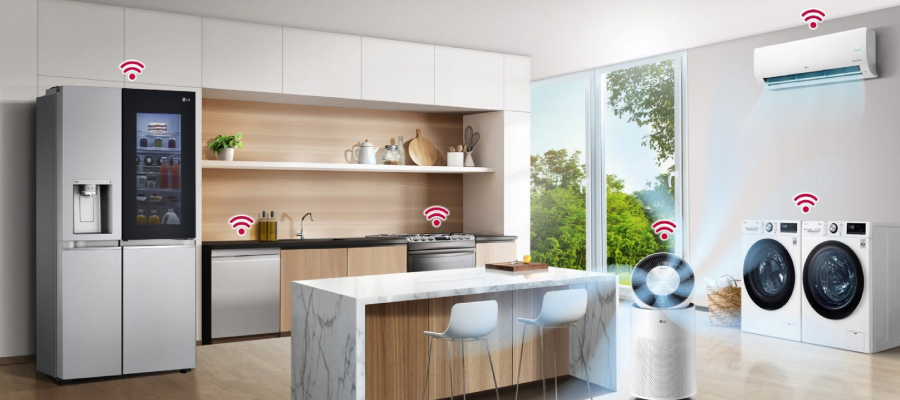
The IFA show floor was packed with the latest home appliances from a wide range of brands and demonstrated just how far the market has transitioned to connected devices.
Some brands such as LG have gone all in for connected appliances, adding Wi-Fi to most of the range, through its ThinQ platform.
SAR’s latest home appliance device market data shows that approximately 30% of all refrigerators, dishwashers, washing machines, etc shipped in 2023 are connected (“smart”). The industry generally classifies a smart appliance as one that is connected to the internet, which is acceptable as a definition as it requires some processing/intelligence to do this and the resulting connection allows the user to track the appliance function, perform diagnostics, etc. But are they truly “smart”?
The smart home has been concept for 10s of years and even with all of the advances in connectivity, voice control, AI, etc we are still not close to the expected solution, where the home predicts our needs and reacts accordingly, controlling multiple devices and adapting the home automatically. It’s been a slow and frustrating process.
The addition of generative AI that Samsung announced moves appliances one step further into being a smart device. Enabling “a deeper understanding of user preferences and behaviour, allowing appliances to respond more intuitively to their needs”. Is this the breakthrough needed to make our home smart?


